Explore the states that bring history to life with iconic landmarks and cultural treasures.

The United States is rich in history, and some states hold a treasure trove of landmarks that tell the story of the nation’s past. From colonial settlements to Civil War battlefields, these destinations allow you to step back in time and experience history firsthand. Whether you’re a history buff or simply love exploring cultural sites, these ten states offer some of the most significant and fascinating historical landmarks in the country.
1. Virginia is home to the birthplace of American democracy
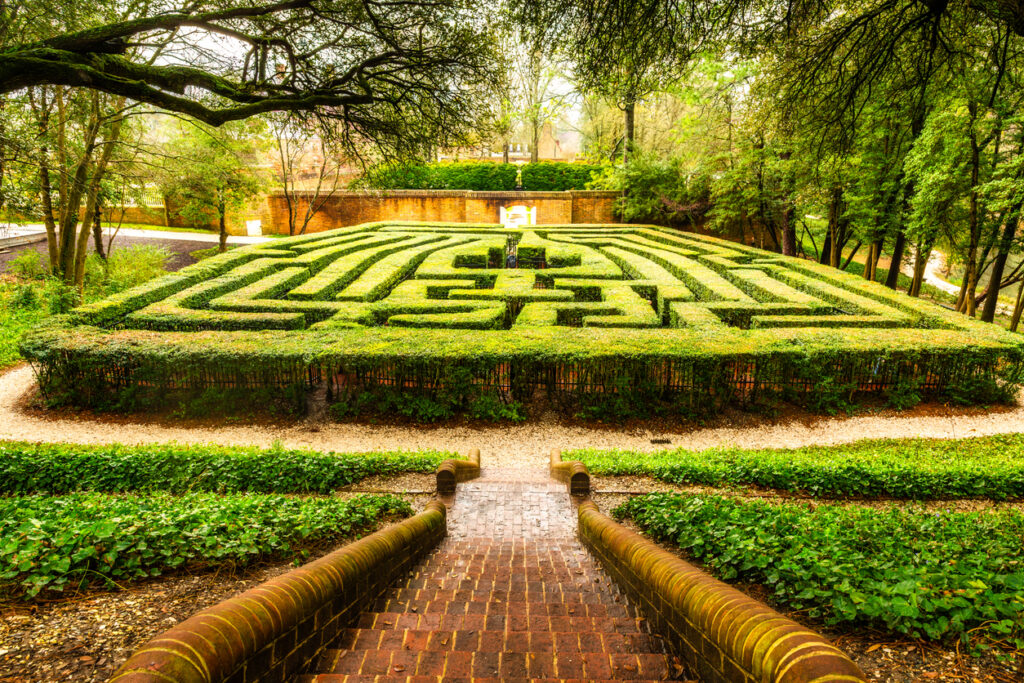
Virginia boasts a wealth of historical landmarks that played pivotal roles in America’s early history. Jamestown, the first permanent English settlement, and Williamsburg, a living history museum, offer immersive experiences. Civil War buffs can visit battlefields like Manassas and Appomattox Court House. Monticello, the home of Thomas Jefferson, and Mount Vernon, George Washington’s estate, provide a glimpse into the lives of key figures. Virginia’s historical significance makes it a must-visit for anyone exploring America’s roots.
2. Massachusetts showcases the heart of the American Revolution
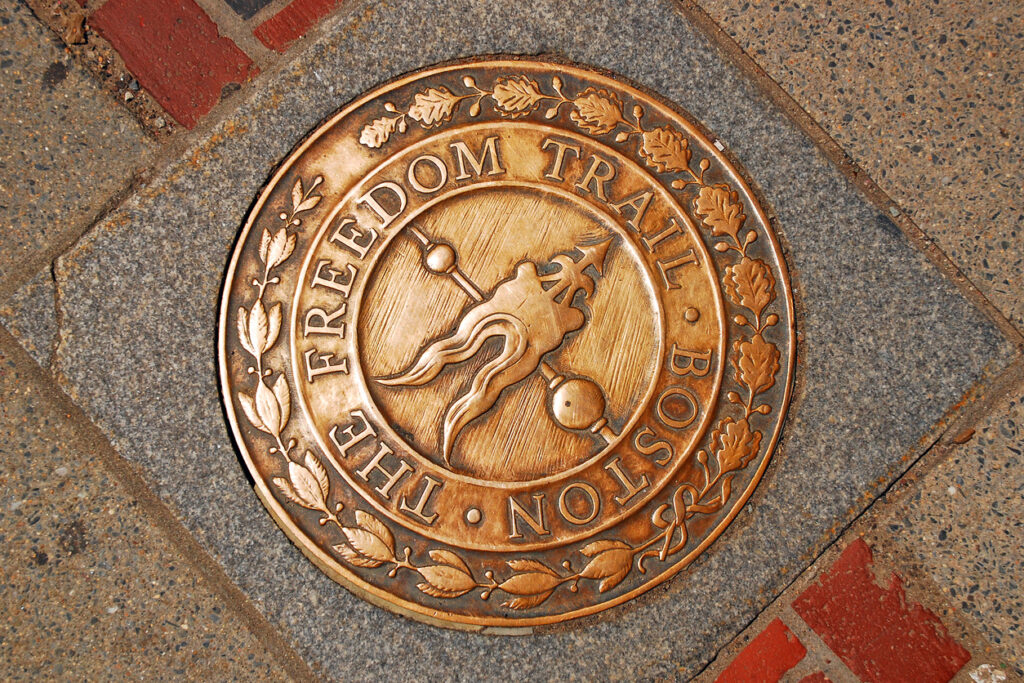
Massachusetts is a cornerstone of America’s colonial and revolutionary history. Walk the Freedom Trail in Boston to visit landmarks like Paul Revere’s House and the Old North Church. Explore Plymouth, where the Pilgrims landed in 1620, and visit Plimoth Patuxet Museums for an interactive experience. Lexington and Concord, where the first shots of the Revolutionary War were fired, offer preserved battle sites and museums. Massachusetts provides a deep dive into the nation’s fight for independence. (Source-Mass. Secretary of State)
3. Pennsylvania features iconic sites of early American government
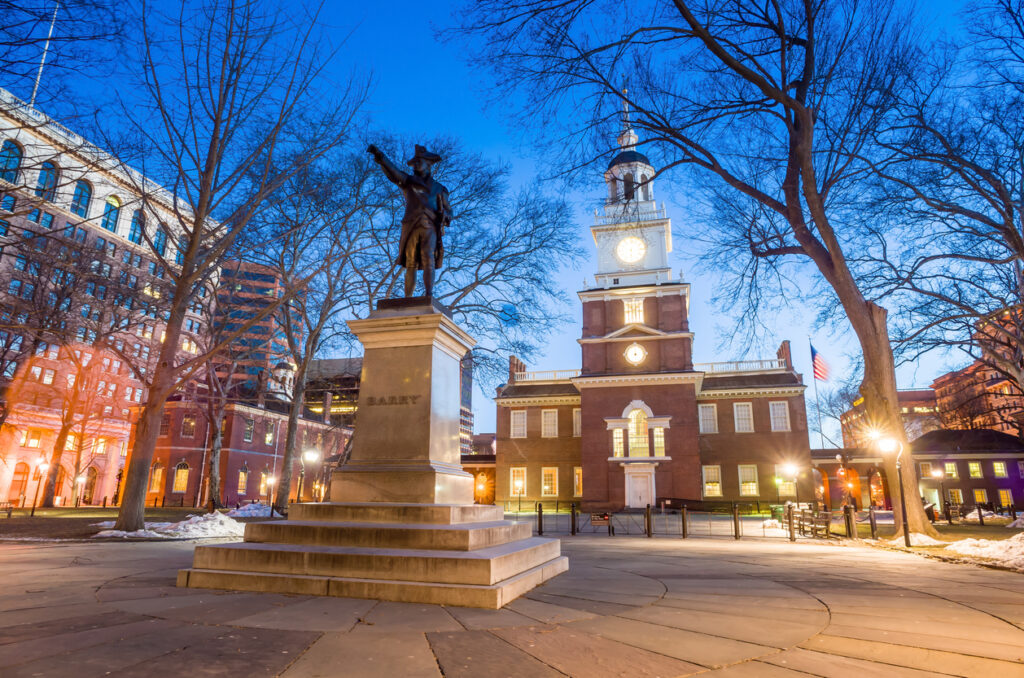
Pennsylvania holds a unique place in U.S. history as the birthplace of the Declaration of Independence and the Constitution. Philadelphia’s Independence Hall and Liberty Bell are must-see landmarks. History buffs can also explore Gettysburg National Military Park, the site of a pivotal Civil War battle. Valley Forge National Historical Park offers insights into the struggles of the Revolutionary War. Pennsylvania’s rich history is complemented by its well-preserved landmarks and engaging museums.
4. New York offers a blend of historical and cultural landmarks
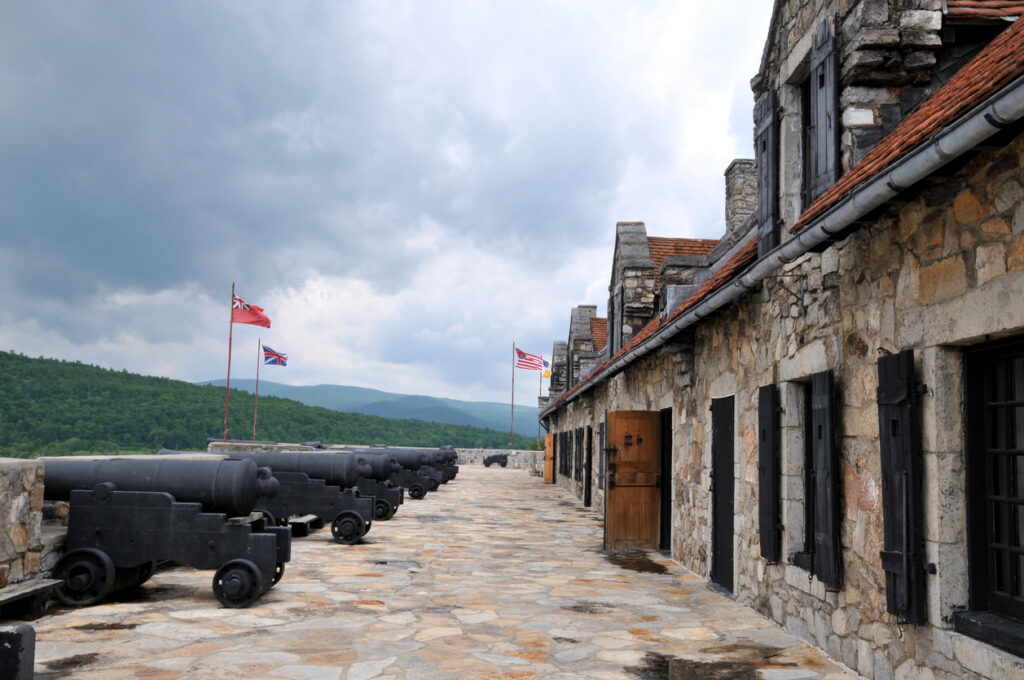
New York’s landmarks reflect the state’s significant contributions to American history. The Statue of Liberty and Ellis Island symbolize immigration and the American Dream. Revolutionary War sites like Fort Ticonderoga and Saratoga Battlefield preserve early history, while the Erie Canal showcases industrial advancements. Don’t miss iconic sites like the Empire State Building and the 9/11 Memorial, which honor more recent history. New York’s diverse landmarks offer a comprehensive look at the past and its ongoing legacy.
5. South Carolina highlights the Civil War’s beginnings
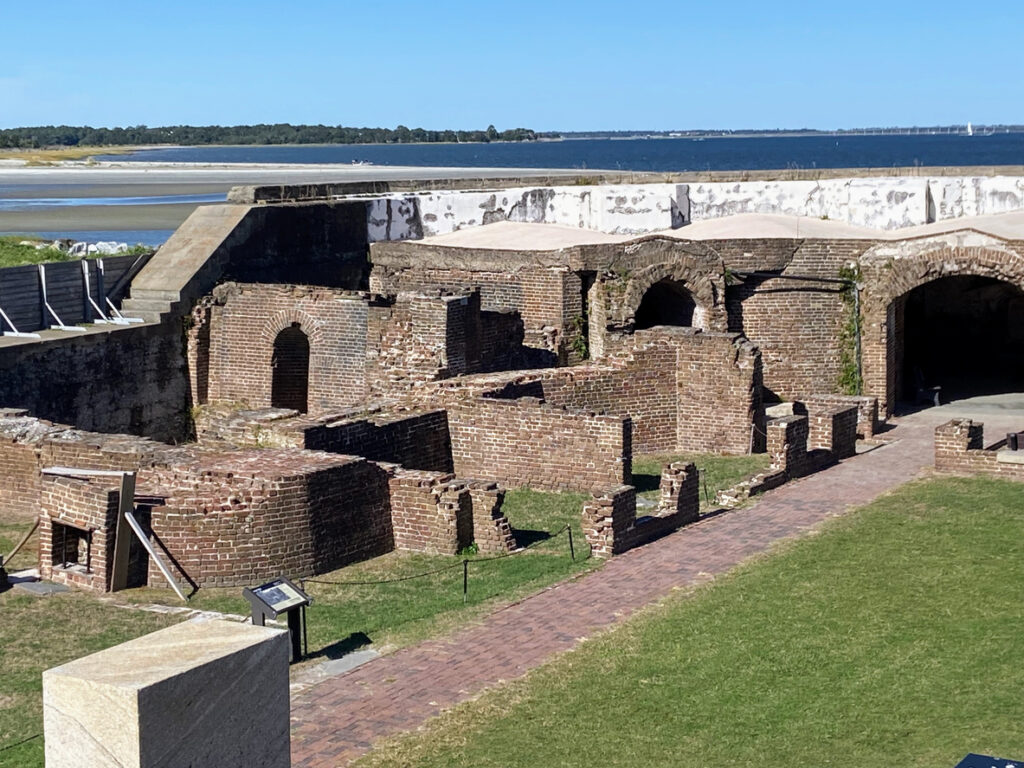
South Carolina is steeped in Civil War history, starting with Fort Sumter, where the first shots of the war were fired. Charleston’s historic district offers preserved antebellum architecture, cobblestone streets, and plantations like Magnolia and Middleton Place. The state also features Revolutionary War sites such as Cowpens National Battlefield. South Carolina’s landmarks provide a fascinating glimpse into the complex history of the American South and its role in shaping the nation.
6. California combines missions with modern landmarks

California’s history is reflected in its 21 Spanish missions, stretching from San Diego to Sonoma. These landmarks showcase the state’s colonial and religious roots. The Golden Gate Bridge and Alcatraz Island offer a modern twist on historical exploration, while Old Town San Diego preserves the state’s early days. The state’s blend of Native American, Spanish, and Gold Rush-era landmarks creates a rich tapestry of history that appeals to a wide range of interests.
7. Louisiana showcases the cultural crossroads of American history
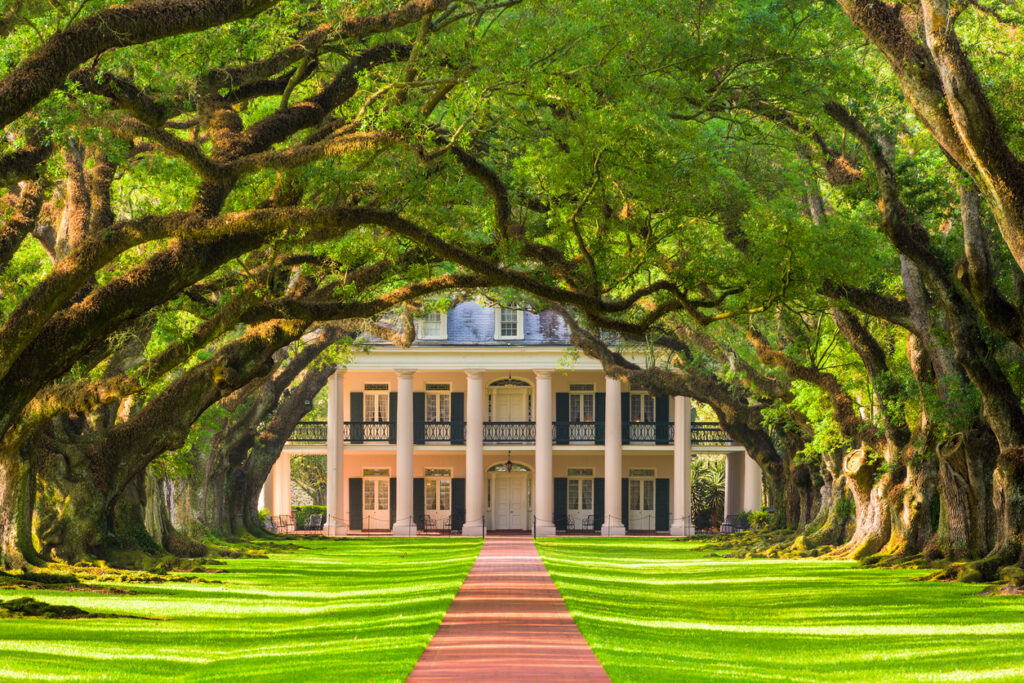
Louisiana’s historical landmarks highlight its unique blend of French, Spanish, and Creole influences. The French Quarter in New Orleans offers a vibrant mix of architecture, music, and history. Visit the Oak Alley and Whitney Plantations to understand the state’s antebellum past. The Chalmette Battlefield, site of the Battle of New Orleans during the War of 1812, is another highlight. Louisiana’s rich cultural history makes it a fascinating destination for history lovers.
8. Texas offers a window into the Wild West and beyond
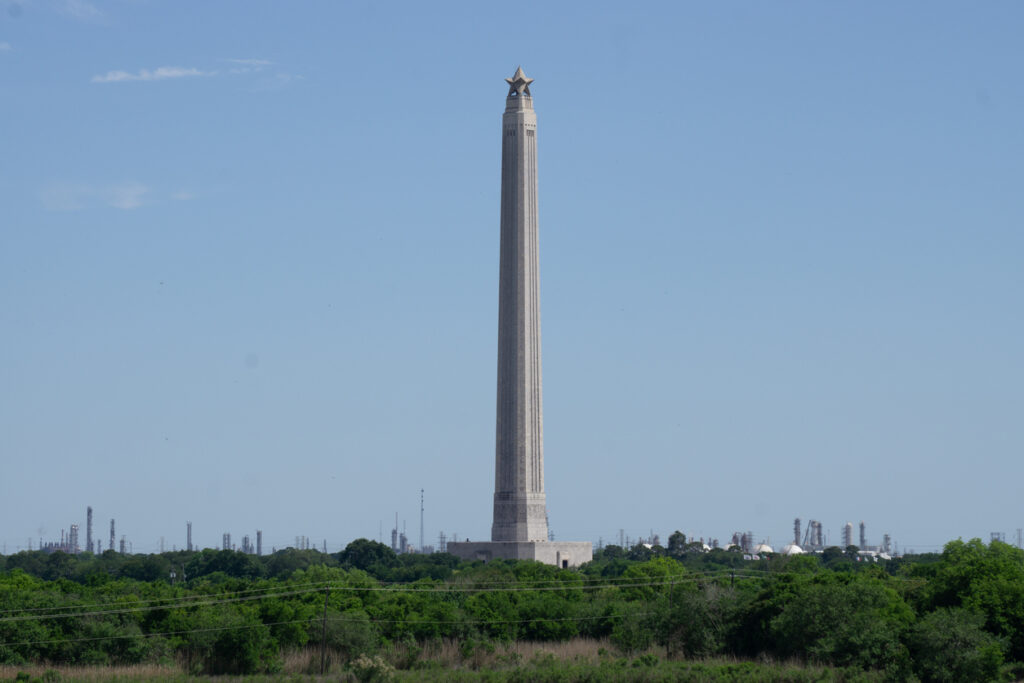
Texas is home to a diverse array of historical landmarks, from the Alamo in San Antonio to frontier forts and missions. The San Jacinto Monument commemorates the decisive battle of the Texas Revolution, while Dealey Plaza in Dallas marks a pivotal moment in modern history. Visitors can also explore the Chisholm Trail and other routes that shaped the state’s cattle-ranching heritage. Texas’s history offers a dynamic mix of independence, innovation, and resilience.
9. Illinois preserves Lincoln’s legacy and midwestern heritage
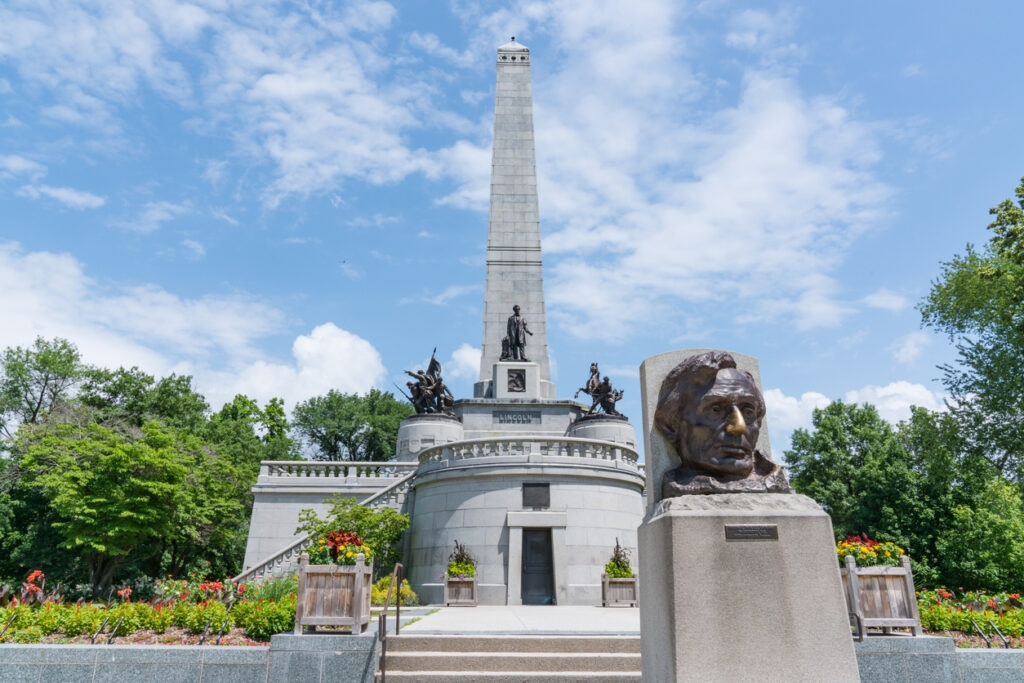
Illinois is synonymous with Abraham Lincoln, featuring landmarks like Lincoln’s Home National Historic Site in Springfield and the . The state also played a role in industrial and architectural history, with sites like Chicago’s Pullman Historic District and Frank Lloyd Wright’s homes. Cahokia Mounds, a pre-Columbian Native American site, adds depth to Illinois’s historical offerings. This mix of presidential, industrial, and ancient landmarks makes Illinois a diverse destination for history enthusiasts.
10. Washington, D.C., offers a hub of American history and governance
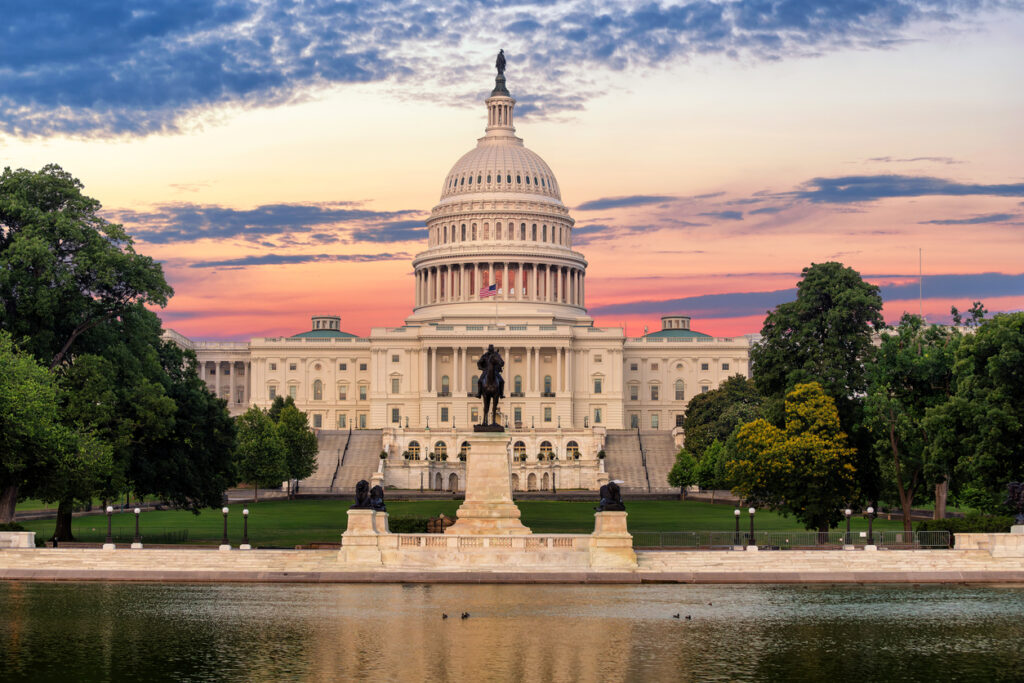
While not a state, Washington, D.C., is a central hub for U.S. historical landmarks. The National Mall features iconic sites like the Lincoln Memorial, Washington Monument, and the U.S. Capitol. The Smithsonian museums offer an unparalleled dive into history, culture, and science. Arlington National Cemetery honors fallen heroes, while historic neighborhoods like Georgetown preserve the city’s colonial roots. D.C.’s landmarks make it an essential stop for understanding the nation’s history and its democratic foundations.
